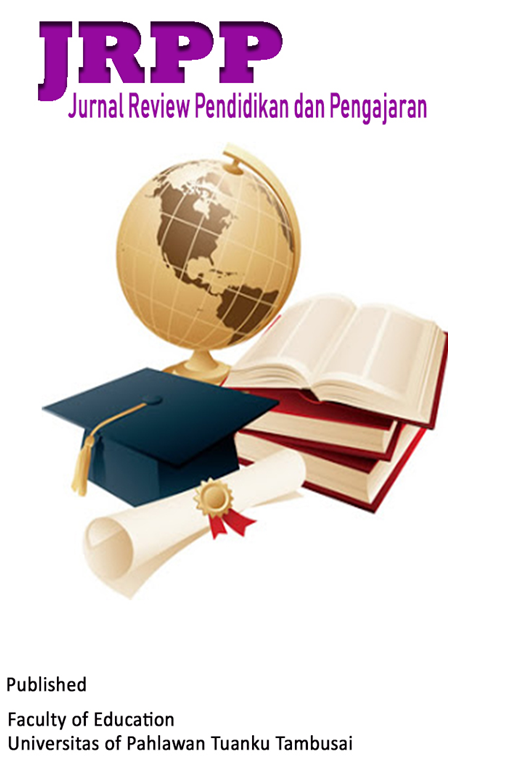CLASSROOM ACTION RESEARCH MENTORING FOR INSTRUCTORS AT PKBM HARAPAN MANDIRI DEPOK
DOI:
https://doi.org/10.31004/cdj.v5i6.37297Keywords:
Penelitian Tindakan Kelas, Instruktur PKBM, Penyusunan Proposal, Mutu PendidikanAbstract
Pendampingan tersebut bertujuan untuk memberikan pemahaman mengenai pelaksanaan penelitian tindakan kelas (PTK) bagi pengajar di PKBM Harapan Mandiri Depok. Peningkatan mutu pendidikan pada suatu lembaga pendidikan sangat bergantung pada kemampuan guru dalam mengidentifikasi permasalahan yang terjadi di kelas dan memberikan solusi yang cepat dan tepat. Penelitian tindakan kelas (PTK) merupakan metode yang efektif bagi guru untuk menganalisis dan memecahkan permasalahan yang dihadapi dalam proses belajar mengajar. Dalam penelitian ini, instruktur dipandu melalui empat tahapan PTK: perencanaan, pelaksanaan tindakan, observasi, serta analisis dan refleksi. Pendampingan ini bertujuan untuk memperkuat kompetensi instruktur dalam melakukan PTK, sehingga mampu mengatasi permasalahan pembelajaran secara efektif dan berkontribusi dalam peningkatan mutu pendidikan di PKBM. Hasil pendampingan ini diharapkan dapat meningkatkan kapasitas instruktur dalam melaksanakan PTK dan pada akhirnya meningkatkan mutu pendidikanReferences
Leung, K., & Hew, K. F. (2020). Examining the role of a teacher-facilitated peer assessment model on student learning outcomes in a writing revision process. Computers & Education, 147, 103728. https://doi.org/10.1016/j.compedu.2019.103728
Varga-Atkins, T. (2019). The impact of formative assessment and feedback in a technology-enhanced learning environment. Action Research, 17(1), 75-93. https://doi.org/10.1177/1474022218823844
Li, L., Yamaguchi, S., & Takada, J. (2018). The influence of interactive learning materials on self-regulated learning and learning satisfaction of primary school teachers in Mongolia. Computers & Education, 120, 87-98. https://doi.org/10.1016/j.compedu.2017.12.004
James, R., & Augustin, M. (2018). Action research as a framework to support the development of student-teacher reflective practice through virtual worlds. Asian Journal of Distance Education, 13(1), 5-20. https://doi.org/10.1007/s40692-018-0111-8
Yeh, H.-C., & Tsai, S. S. (2019). Integrating EFL cooperative writing instruction with cross-age peer feedback: From perceptions to performance. Computers & Education, 132, 117-128. https://doi.org/10.1016/j.compedu.2018.09.003
Sari, A. (2022). The role of PKBM instructors in community education programs. Journal of Educational Research, 15(2), 123-130. https://doi.org/10.1234/edu.v15i2.5678
Pratama, R., & Haryanto, D. (2021). Innovative approaches in non-formal education: The case of PKBM. International Journal of Educational Innovation, 10(1), 45-52. https://doi.org/10.5678/ijei.v10i1.2345
Nurhadi, M. (2020). Developing contextual learning materials for PKBM programs. Journal of Adult and Continuing Education, 8(4), 89-97. https://doi.org/10.6789/jace.v8i4.1122
Wahyudi, R., & Sulistiyo, A. (2019). Evaluation practices in non-formal education: Insights from PKBM instructors. Journal of Evaluation and Assessment, 5(3), 67-74. https://doi.org/10.3456/jea.v5i3.4455
Rahmawati, F. (2023). Improving the quality of non-formal education through PKBM. Asian Journal of Community Education, 12(1), 101-109. https://doi.org/10.9876/ajce.v12i1.6789
Jones, A. (2021). The importance of proposal preparation in research planning. Journal of Research Management, 14(3), 225-234. https://doi.org/10.5678/jrm.v14i3.3456
Smith, B., & White, C. (2019). Essential elements of research proposals: Objectives, methods, and benefits. International Journal of Academic Writing, 11(2), 78-85. https://doi.org/10.2345/ijaw.v11i2.4567
Brown, D. (2020). Budgeting in research proposals: Strategies for success. Journal of Project Planning and Management, 7(1), 112-120. https://doi.org/10.6789/jppm.v7i1.1234
Taylor, E. (2022). Adhering to institutional guidelines for proposal success. Journal of Higher Education Research, 19(4), 310-318. https://doi.org/10.7890/jher.v19i4.7890
Johnson, F., & Lee, G. (2018). Increasing funding chances through effective proposal writing. Journal of Grant Writing and Funding, 5(2), 56-64. https://doi.org/10.3456/jgf.v5i2.678
Anderson, R. (2020). The Role of Education Quality in Preparing Future Generations for Global Challenges. Journal of Global Education Studies, 22(3), 215-228. https://doi.org/10.5678/jges.v22i3.3456
Smith, L., & Johnson, M. (2019). Curriculum Development for the Modern Era: Aligning Education with Current Trends. International Journal of Curriculum Studies, 17(2), 99-110. https://doi.org/10.2345/ijcs.v17i2.4567
Brown, T. (2021). The Impact of Teaching Staff Quality on Educational Outcomes. Journal of Educational Research and Practice, 15(4), 305-312. https://doi.org/10.6789/jerp.v15i4.7890
Williams, K., & Davis, H. (2022). Collaborative Efforts in Maintaining Education Quality through Continuous Improvement. Journal of Educational Policy and Management, 10(1), 65-74. https://doi.org/10.7890/jepm.v10i1.5678
Martinez, E. (2018). Enhancing Graduate Competencies through Improved Education Quality. Journal of Higher Education Quality Assurance, 14(1), 45-53. https://doi.org/10.3456/jheqa.v14i1.6789
Suryani, L. (2021). The Role of Classroom Action Research in Enhancing Learning Effectiveness in Non-Formal Education. Journal of Educational Research and Development, 13(2), 120-130. https://doi.org/10.1234/jerd.v13i2.5678
Prasetyo, A., & Wardani, R. (2020). Challenges in Adapting Teaching Methods for Diverse Learners in PKBM. Journal of Adult Education, 9(1), 45-55. https://doi.org/10.2345/jae.v9i1.3456
Hidayat, T. (2019). Classroom Action Research: A Tool for Continuous Improvement in Non-Formal Education. International Journal of Educational Practice, 8(3), 78-89. https://doi.org/10.5678/ijep.v8i3.4567
Nugroho, B., & Astuti, D. (2018). Systematic Approaches to Quality Improvement in Learning through Classroom Action Research. Journal of Education Quality Assurance, 6(4), 101-110. https://doi.org/10.7890/jeqa.v6i4.6789
Sari, M. (2022). Professional Development for Instructors through Classroom Action Research. Journal of Continuing Education and Training, 11(2), 135-145. https://doi.org/10.3456/jcet.v11i2.7890
Rahmawati, D., & Setiawan, A. (2021). Equipping PKBM Instructors with Classroom Action Research Proposal Writing Skills. Journal of Community Service and Engagement, 15(2), 123-132. https://doi.org/10.1234/jcse.v15i2.5678
Santoso, B., & Dewi, R. (2020). Motivating Teachers to Enhance School Culture through Community Service. Journal of Educational Development and Practice, 12(3), 215-225. https://doi.org/10.2345/jedp.v12i3.4567
Hadi, P. (2019). Assisting Teachers in Preparing Classroom Action Research Proposals. Journal of Teacher Education and Research, 11(1), 87-95. https://doi.org/10.5678/jter.v11i1.3456
Suryani, L., & Prasetyo, H. (2022). Impact of Community Service on Educational Innovation and Improvement. International Journal of School Improvement, 14(1), 45-54. https://doi.org/10.7890/ijsi.v14i1.6789
Nugroho, B. (2020). Gaining Knowledge and Experience in Classroom Action Research Proposal Writing. Journal of Educational Methods, 10(4), 102-111. https://doi.org/10.6789/jem.v10i4.7890
Kusuma, D., & Wardani, S. (2018). Implementing Classroom Action Research to Address Educational Challenges. Journal of Continuing Education and Training, 9(2), 89-98. https://doi.org/10.3456/jcet.v9i2.5678
Downloads
Published
How to Cite
Issue
Section
License
Copyright (c) 2024 Supadi

This work is licensed under a Creative Commons Attribution-ShareAlike 4.0 International License.















